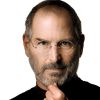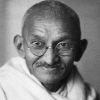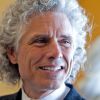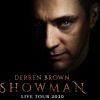12 Philosopher Biography Books That Will Expand Your Mind
Recommended by Steve Jobs, Mahatma Gandhi, Steven Pinker, and Paul Cartledge, these Philosopher Biography Books offer profound insights to enrich your perspective.






What if you could step directly into the lives of some of the most influential thinkers who shaped human understanding? Philosopher Biography books offer you exactly that—a chance to explore not just abstract ideas, but the personal journeys, challenges, and contexts that gave rise to enduring philosophies. In an age hungry for authenticity and depth, these biographies reveal the human side of philosophy, making complex doctrines relatable and alive.
Steven Pinker, a cognitive psychologist known for his work on language and human nature, praises "Maverick" for portraying Thomas Sowell as a fearless and original thinker whose life story magnifies his intellectual achievements. Likewise, Paul Cartledge, a Cambridge fellow specializing in Greek culture, highlights "Plato of Athens" for its clarity and wit in unveiling the man behind Western philosophy’s foundations. These endorsements by respected scholars and thought leaders signal the profound insights these books can offer you.
While these expert-curated biographies provide a rich foundation, if you seek a reading experience tailored precisely to your background, interests, and learning goals, consider creating a personalized Philosopher Biography book. This approach builds on these classics to deliver insights tailored just for you, accelerating your journey into the lives and ideas of philosophy’s giants.
Recommended by Steven Pinker
Cognitive psychologist and author
“Thomas Sowell is among the most brilliant thinkers in the world today—deep, original, creative, fearless, intimidatingly erudite. His gripping and improbable life story can only magnify one’s awe at this astonishing man’s accomplishments.” (from Amazon)
by Jason L Riley··You?
by Jason L Riley··You?
Drawing from his experience as a Wall Street Journal columnist and Manhattan Institute fellow, Jason L. Riley crafts a detailed portrait of Thomas Sowell, a towering figure in conservative social theory. This biography traces Sowell's journey from a Black orphan in the Jim Crow South to a prolific thinker whose writings challenge prevailing liberal views on economics, race, and culture. You’ll gain insight into Sowell’s key ideas and the life events that shaped them, including his critiques of political correctness and social policy. The book suits anyone interested in political biography, social theory, or understanding the roots behind Sowell’s controversial yet influential perspectives.
Recommended by Troy Baker Is A Relater
Storyteller and voice actor
“@DonJRobertson Have been reading and re-reading this specific part of your book for the last several days. Powerful connections. Would love to discuss with you further on our podcast. Fancy a chat?” (from X)
by Donald J. Robertson··You?
by Donald J. Robertson··You?
Drawing from over two decades as a cognitive-behavioral psychotherapist, Donald J. Robertson explores the life and philosophy of Marcus Aurelius not just as history but as a living guide for modern challenges. You’ll uncover how Marcus used Stoic principles and therapeutic techniques to build resilience and maintain calm amid intense adversity, illustrated by detailed stories from his rise through Roman power and personal reflections from his Meditations. The book offers practical mental habits, such as cognitive distancing and emotional regulation, that you can apply to navigate your own ethical and psychological struggles. If you seek a grounded, psychologically informed look at Stoicism through the lens of one of its greatest practitioners, this book will engage and inform you.
by TailoredRead AI·
This tailored book explores the rich tapestry of philosopher biographies through a lens uniquely focused on your interests and learning objectives. It examines the lives, contexts, and intellectual journeys of pivotal thinkers, connecting their personal stories to the philosophies they developed. By matching content to your background, it offers an engaging pathway through complex philosophical history that reveals how individual experiences shaped enduring ideas. This personalized approach allows you to delve deeply into the nuances of each philosopher's life and thought, fostering a richer, more meaningful understanding than standard biographies. Ultimately, it nurtures a personalized intellectual adventure through the human stories behind philosophy’s greatest minds.
Recommended by Paul Cartledge
Senior Fellow, Cambridge University Greek Culture expert
“If all Western philosophy is as has been claimed a series of footnotes to Plato of Athens, it's fortunate indeed that all his dialogues have survived and attracted translators and interpreters of the caliber of Robin Waterfield. Brilliant, witty, profound--and perplexing: Plato's all those and more (a uniquely resonant stylist too), and it's no mean tribute both to him and to the author to say that Robin Waterfield has done him justice.” (from Amazon)
by Robin Waterfield··You?
by Robin Waterfield··You?
Unlike many biographies that merely recount dates and events, Robin Waterfield offers a nuanced portrait of Plato shaped by his own deep engagement as a translator of Plato's key dialogues. You gain insight into Plato's complex political ambitions, his founding of the Academy, and the cultural tensions of wartime Athens that influenced his philosophy. Waterfield carefully separates myth from reality, explaining why Plato favored dialogues over treatises and tracing the evolution of his thought through his political experiments in Syracuse. If you want to understand not just Plato's ideas but the man behind them, this book guides you through his life with clarity and precision.
Recommended by The New Yorker
“This lively history of the existentialist movement makes a strong, if sometimes disorienting, case for the inextricability of philosophy and biography, embedding dense concepts—such as ‘being,’ ‘nothingness,’ and ‘bad faith’—in the colorful lives and milieus of those who debated them. Though the book is in many ways a group study, dotted with cameo appearances by Albert Camus, Simone de Beauvoir, Maurice Merleau-Ponty, and others, it focuses on Heidegger and Sartre. Heidegger appears as oracular, hermetic, and Nazi-tainted; Sartre as intellectually promiscuous and Soviet-sympathizing. Their divergent characters and checkered reputations lend credence to Bakewell’s view that ‘ideas are interesting, but people are vastly more so.’” (from Amazon)
by Sarah Bakewell··You?
When Sarah Bakewell first discovered the lively debates over apricot cocktails in Paris cafés, she saw a way to bring existentialist philosophy to life through the vivid personalities behind it. You’ll gain insights into how figures like Sartre and Heidegger wrestled with freedom, authenticity, and responsibility amid political upheaval, with detailed chapters exploring their relationships and philosophical clashes. This book suits anyone curious about how biography shapes philosophy, especially those wanting a nuanced understanding of existentialism’s impact on feminism, anti-colonialism, and modern thought. By blending biography and philosophy, Bakewell invites you to see ideas as inseparable from the messy, passionate lives of their creators.
Recommended by Kunal Kapoor
Actor and filmmaker
“Was introduced to this book over 20 years ago. Since then have reread it multiple times. And each time it’s just as fascinating, mind-expanding and insightful.” (from X)
by Paramahansa Yogananda, W. Y. Evans-Wentz··You?
by Paramahansa Yogananda, W. Y. Evans-Wentz··You?
After founding Self-Realization Fellowship and dedicating decades to spreading yoga philosophy, Paramahansa Yogananda penned this memoir blending personal narrative with spiritual teaching. You’ll explore his youthful search for enlightenment across India, his encounters with mystics like Mahatma Gandhi, and the meditation techniques he introduced to the West. The book delves into the laws behind everyday and extraordinary events, offering insight into both the spiritual and practical aspects of yogic tradition. If you seek a blend of biography and spiritual philosophy grounded in lived experience, this book offers a unique window into Eastern wisdom adapted for a global audience.
by TailoredRead AI·
This tailored book explores the rich lives and ideas of key philosophers through a focused, accelerated learning plan designed around your unique background and interests. It covers the essential biographies of influential thinkers, contextualizing their philosophies within the personal journeys that shaped their thoughts. By matching content to your prior knowledge and goals, it reveals connections and insights that deepen understanding without overwhelming you. The personalized approach ensures you engage with the material most relevant to your learning path, making complex philosophical histories accessible and compelling. This book invites you to embark on a tailored exploration of philosophy’s giants, enhancing both your appreciation and critical grasp of their enduring influence.
Recommended by Ryan Holiday
Media strategist, former marketing director
by Sarah Bakewell··You?
Unlike most philosopher biographies that chronicle lives through rigid timelines, Sarah Bakewell’s narrative follows Montaigne’s restless mind as it wrestles with life’s central question: how to live well. Drawing from her background curating rare books and teaching creative writing, Bakewell captures Montaigne’s essays not just as historical artifacts but as living attempts to understand friendship, mortality, and happiness. You’ll explore chapters detailing his relationship with Étienne de La Boétie and his reflections during religious wars, gaining insight into Renaissance thought and its relevance today. This book suits you if you seek a biography that blends intellectual history with personal inquiry rather than a straightforward life story.
Recommended by Heidi N. Moore
Business editor, WSJ and Guardian alum
“@VarickBoyd @JeSuisBHL Ah well, I thought you were a veteran of this world, my error. Enjoy the book! It's fantastic.” (from X)
by Robert L. Heilbroner··You?
When Robert L. Heilbroner wrote this book, he sought to trace the evolution of economic thought through the lives and ideas of its foremost thinkers, from Adam Smith to Karl Marx. You gain an understanding of how these philosophers grappled with capitalism’s complexities and the social issues intertwined with economics, especially highlighted in the book’s new concluding chapter questioning the limits of modern economic science. It’s ideal if you want a historical and thematic grasp of economic philosophy rather than a technical manual, with chapters that connect each thinker’s context to contemporary economic debates. This isn’t for those seeking pure economic theory but for anyone curious about how economic ideas shape our society.
Recommended by Victor Mair
University of Pennsylvania professor
“Greek Buddha is a profoundly thought-provoking work. It is chock full of daring yet substantiated premises, which makes for genuinely exciting reading. Whether or not everyone will accept all of Beckwith's stimulating findings, they will surely come away from their encounter with this remarkable book with a greater appreciation for the interconnectedness of Eurasian history and culture.” (from Amazon)
by Christopher I. Beckwith··You?
by Christopher I. Beckwith··You?
Christopher I. Beckwith, a Distinguished Professor of Central Eurasian Studies and MacArthur Award recipient, investigates how Pyrrho of Elis encountered early Buddhist thought during Alexander the Great's campaigns. You learn how Beckwith traces Pyrrho's skepticism back to Buddhist teachings in Central Asia, supported by historical texts and philosophical analysis, including comparisons with Indian and Chinese traditions. The book offers detailed explorations of eight ancient philosophical schools and their interrelations, challenging conventional narratives about Western philosophy's origins. If your interest lies in the cross-cultural roots of philosophy and the historical transmission of ideas, this book will deepen your understanding and challenge your assumptions.
Recommended by Mahatma Gandhi
Leader of Indian Independence Movement
by Plato, John M. Cooper, G. M. A. Grube·You?
by Plato, John M. Cooper, G. M. A. Grube·You?
This edition of The Trial and Death of Socrates offers readers a refined translation by G. M. A. Grube, updated by John M. Cooper, drawing you directly into the pivotal moments of Socrates' final days. You'll encounter a carefully annotated text that reveals the philosophical and legal intricacies of Socrates' trial, including his defense speech and the arguments leading to his condemnation. The brief yet dense 58 pages lay bare the tensions between individual conscience and state power, making it an essential exploration for those interested in classical philosophy and ethical reasoning. If you're seeking a focused, annotated text that combines literary clarity with philosophical depth, this edition stands as a worthy companion.
Recommended by Jim Rohn
America's foremost business philosopher
by Will Durant··You?
by Will Durant··You?
When Will Durant first realized the enduring impact of Western philosophy, he dedicated over a decade to crafting this engaging chronicle that intertwines detailed biographies with the philosophical ideas of thinkers like Nietzsche, Plato, and Kant. You get more than abstract theories; Durant places these minds within their historical contexts, revealing how their personal lives shaped their groundbreaking ideas. For example, his exploration of Nietzsche's philosophy is not just about concepts but about the man behind them and his influence on modern thought. This book suits anyone curious about philosophy's human side, from students to enthusiasts seeking a clearer grasp of its evolution.
Recommended by Cass Sunstein
Harvard professor, former White House official
“"I may be somewhat unusual in the fact that I never get tired or sated with what I love most, so I don't need or want variety." - Derek Parfit (from the amazing new book by David Edmonds)” (from X)
by David Edmonds··You?
by David Edmonds··You?
David Edmonds offers a detailed portrait of Derek Parfit, a philosopher driven by a relentless quest to ground secular morality in objective rationality. You’ll explore Parfit’s unique approach to ethics, his obsessive routines, and the profound implications of his ideas on equality, altruism, and personal identity. Chapters like his later-life focus on rescuing morality without reliance on God reveal how philosophical rigor meets existential urgency. This book suits you if you want to grasp how abstract moral philosophy can deeply influence contemporary ethical debates and understand the man behind those ideas.
The methods Brian O'Connor developed while teaching philosophy at University College Dublin shine through in this clear examination of Adorno's complex thought. You’ll find carefully unpacked explanations of Adorno’s key concepts like negative dialectics and the dialectic of enlightenment, with chapters dedicated to his critiques of modernity, aesthetics, and social theory. This book suits anyone grappling with Adorno’s challenging style or wanting to understand his influence on critical theory, literature, and cultural studies. For example, chapter six dives into Adorno’s aesthetics, showing how his ideas on art’s autonomy remain relevant today. If you seek a thoughtful entry point into Adorno’s philosophy, this book offers a solid foundation without oversimplifying.
Get Your Personal Philosopher Biography Guide ✨
Stop sifting through many books—get focused strategies tailored to your interests in minutes.
Trusted by philosophy enthusiasts worldwide
Conclusion
Together, these 12 Philosopher Biography books trace a vivid arc—from the ancient streets of Athens with Plato and Socrates, through the existential cafés of Paris, to the modern ethical debates stirred by thinkers like Parfit. A clear theme emerges: understanding philosophy is inseparable from understanding the thinkers themselves—their struggles, environments, and passions.
If you’re grappling with big ethical questions, start with "Parfit" and "How to Think Like a Roman Emperor" for thoughtful, actionable perspectives. For a broader historical sweep, pair "The Worldly Philosophers" with "Plato of Athens" to see philosophy’s evolution in context. And if you want to connect spirituality with biography, "Autobiography of a Yogi" offers a unique gateway.
Alternatively, you can create a personalized Philosopher Biography book to bridge general principles and your specific interests. These books can help you accelerate your learning journey, offering perspectives that resonate with your own quest for meaning and insight.
Frequently Asked Questions
I'm overwhelmed by choice – which Philosopher Biography book should I start with?
Start with a biography that matches your interests. For ancient philosophy, try "Plato of Athens"; for modern ethics, "Parfit" offers deep insight. These give a strong foundation to build from.
Are these books suitable if I'm new to Philosopher Biography?
Yes, many books like "How to Live" and "The Story of Philosophy" are accessible and engaging for newcomers, blending biography with clear explanations of ideas.
Do I need to read all these books or can I pick just one?
You can pick one based on your focus area. Each book stands alone, but reading multiple offers richer perspectives across different eras and philosophies.
What makes these Philosopher Biography books different from others?
These titles are recommended by respected thinkers like Steve Jobs and Mahatma Gandhi for their authoritative research, readable style, and deep insights into philosophers’ lives and ideas.
Are there contradictions among the books' perspectives?
Philosophy embraces debate, so some differences in interpretation or emphasis exist, reflecting the complex nature of philosophical thought and the varied lives behind it.
How can I get personalized Philosopher Biography insights without reading all these books?
You can create a personalized Philosopher Biography book that distills expert knowledge tailored to your interests and goals, complementing these classic biographies and saving time.
📚 Love this book list?
Help fellow book lovers discover great books, share this curated list with others!
Related Articles You May Like
Explore more curated book recommendations











